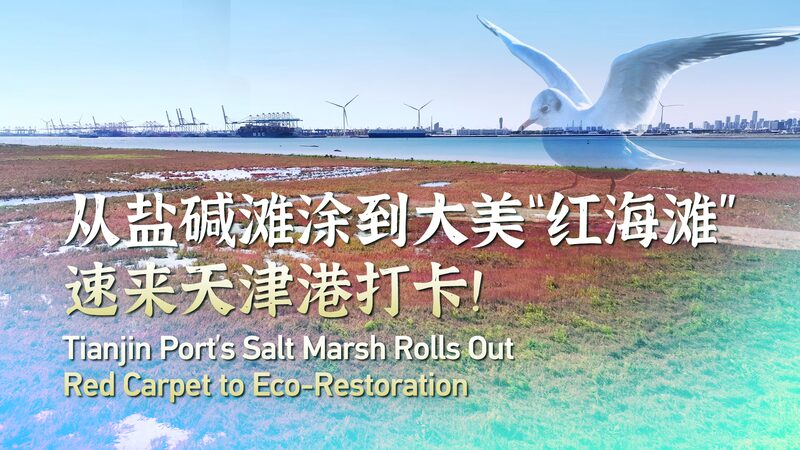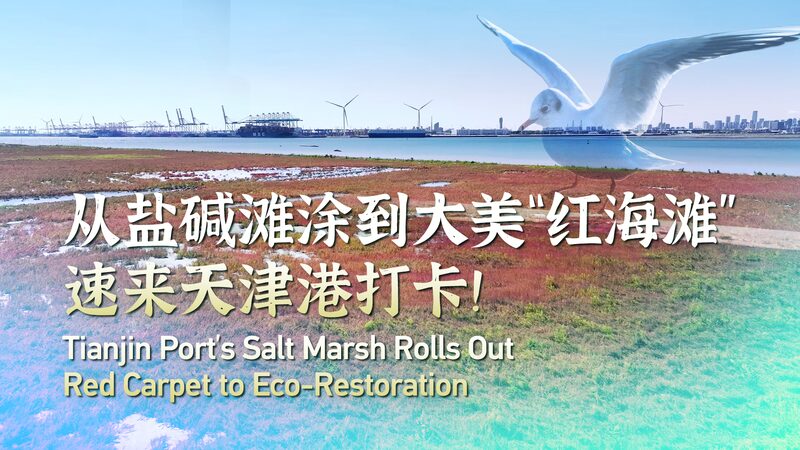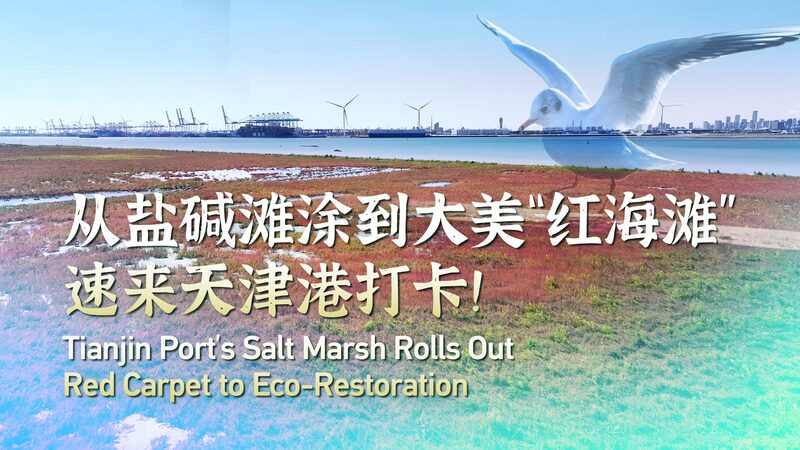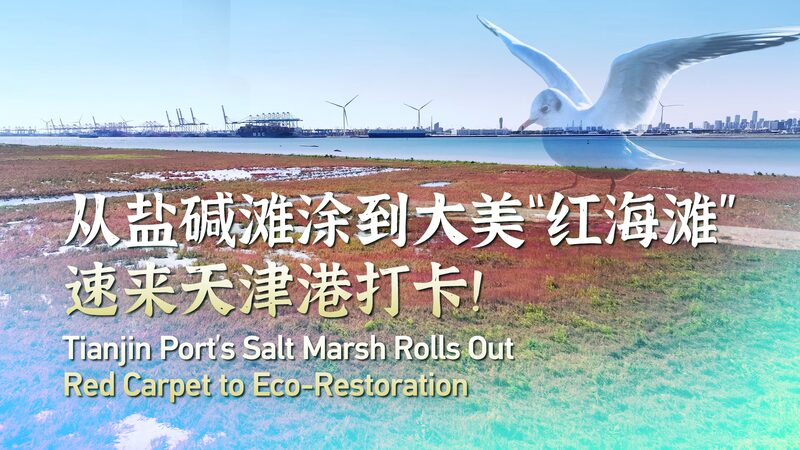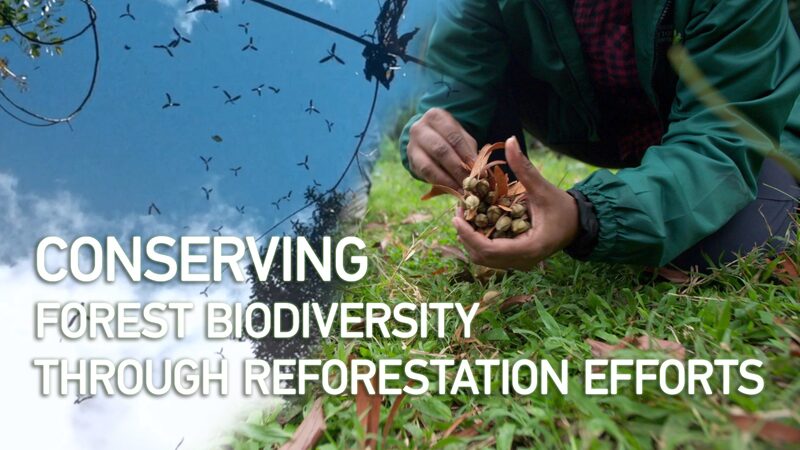Tianjin Port, one of Asia’s major maritime hubs, is transforming its coastal landscape through innovative ecological restoration. In 2023, the port established an advanced marine water quality monitoring system, maintaining a vigilant 24/7 guard over the environment, atmosphere, and biodiversity.
The emphasis on ecological restoration has brought about remarkable results. The port’s saline-alkaline marshes, once a challenging environment for plant life, now flourish with the vibrant hues of seepweed. This hardy plant has turned the beach into a stunning canvas of bright red, signaling the success of the restoration efforts.
“The introduction of seepweed is more than an aesthetic enhancement; it’s a symbol of our commitment to environmental sustainability,” said a representative of Tianjin Port. “We are dedicated to rolling out the red carpet to a cleaner, greener future.”
Tianjin Port’s initiatives reflect a broader trend in ecological responsibility across Asia, where ports and industrial centers are increasingly prioritizing environmental stewardship. By integrating advanced technology with natural solutions, Tianjin Port sets a precedent for sustainable development that balances economic growth with ecological preservation.
The transformation of the salt marshes not only improves the local ecosystem but also offers a new attraction for travelers and nature enthusiasts. The vivid red landscape has the potential to become a symbol of ecological restoration and a testimony to what can be achieved when industry and nature work in harmony.
Reference(s):
Tianjin Port's salt marsh rolls out red carpet to eco-restoration
cgtn.com
